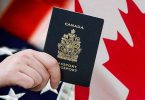knowing that language test for Canada immigration is compulsory if you want to immigrate to canada as a permanent resident. There are many different language tests out there, but only some of them are accepted for Canadian immigration.
Table of Contents
Immigrating to Canada
Excluding spousal sponsorship and temporary immigration programs like International Experience Canada (IEC) – most Canadian economic immigration programs require proof of language, demonstrated by an authorized language test in English or French.
Language tests are required for all programs aligned with Express Entry, including Provincial Nominee Programs (PNPs). Quebec’s immigration streams for workers require proof of language proficiency as well.
Even if English is your first language, you need to take a test. You may write like a Guardian columnist and your accent may rival the Queen’s, but the government still needs a piece of paper to prove it.
Since each test has its own scoring system, Canada uses the Canadian Language Benchmark levels, or CLBs, to compare results from different tests and provide a unified scoring system.
Which test do I take?
The type of language test for Canada immigration you’ll need to take and the scores you’ll need to achieve depend on your immigration program. However, no matter which program you’re applying to, test results must be less than two years old when you submit your application.
Accepted language tests for Express Entry
All candidates in the Express Entry pool are required to maintain a valid language test in their profile – so if your test expires (turns two years old) before you submit your final application for permanent residence, you’ll need to take another one. If your language test for Canada immigration results expire while you’re still in the Express Entry pool, your profile will become ineligible, unless you submit new results.
There are three different immigration programs that are a part of the Express Entry system: Federal Skilled Worker, Canadian Experience Class, and Federal Skilled Trades. Each of these three programs has a different minimum required score in order to be eligible.
Candidates and their spouses in the Express Entry pool can gain points under the Comprehensive Ranking System (CRS) for their language level – in fact, improving your score on a language test is one of the best ways to improve your CRS score.
English
- International English Language Testing System (IELTS) General (do not take the IELTS Academic test, even if it sounds more impressive – it is not accepted)
- Canadian English Language Proficiency Index Program (CELPIP) General
Both tests are equally acceptable for your immigration application, but the IELTS test is more widely available and accepted worldwide.French
- TEF Canada
- TCF Canada
These tests are also accepted as proof of language proficiency for Canada’s many Provincial Nominee Programs (PNPs), and if you are applying as a self-employed worker, or through the start-up visa program.
Accepted language tests for Quebec immigration
The French-speaking province of Quebec has three main immigration pathways for workers: the Quebec Skilled Worker Program, the Quebec Experience Program, and Quebec business immigration. Each of these pathways has different requirements when it comes to language, so be sure to check the requirements for your program of choice.
- The Quebec Skilled Worker program (QSW) awards points to candidates for both English and French language test results.
- The Quebec Experience Program (PEQ) requires French language proficiency and has no English requirements. PEQ candidates have a few options for proving their French abilities. Though the language tests listed below are one option, PEQ candidates also have the option to instead take certain French courses or complete education in French.
- Quebec’s business immigration programs vary depending on if you apply as an entrepreneur, an investor, or as a self-employed person.
As is the standard for Canadian immigration, Quebec accepts language test results that are less than two years old at the time of application. Quebec accepts a broader range of language tests:French
- the Test d’évaluation du français adapté pour le Québec (TEFAQ) of the Chambre de commerce et d’industrie de Paris Île-de-France (CCIP-IDF);
- the Test de connaissance du français pour le Québec (TCF-Québec) of the Centre international d’études pédagogiques (CIEP);
- the Test d’évaluation du français (TEF) of the CCIP-IDF;
- the Test d’évaluation du français pour le Canada (TEF Canada) of the CCIP-IDF;
- the Test de connaissance du français (TCF) of the CIEP;
- the Diplôme d’études en langue française (DELF) of the CIEP;
- the Diplôme approfondi de langue française (DALF) of the CIEP.
English
- IELTS
That’s it. Just the IELTS. Academic test results are accepted, but it is still a good idea to go for the General test anyway. It is easier, and the score is worth the same.
Preparing for your Canadian language test
Even if English is your first language, it is still a very good idea to prepare for your language test. And if English is your second or third language, you should definitely take time to prepare. The methods of testing, the tension in the exam room, the type of questions to assess different language skills – these may all be unfamiliar if you, like most people, haven’t sat an exam since high school or college.
In Canada’s competitive immigration systems, like Express Entry, often language test results can make the difference between a successful and an unsuccessful candidate. It has a big impact, so respect yourself by preparing.
Language tests for canadian education
Language tests for canadian future international students in Canada may need to take a language test as part of their college or university application. The requirements can vary significantly between institutions, and depending on each student’s situation. Learn more about language tests to study in Canada, and compare the requirements of major universities and colleges.
Applying for Canadian citizenship
When you get to the stage of applying for citizenship – congratulations, by the way! – you will need to prove you have “adequate” knowledge of English or French. The requirements for proof are much more relaxed by this point.
Applicants need to demonstrate a language level of CLB 4 in either English or French, and this can be proven by:
- the results of an IRCC-approved third-party test, or,
- proof from certain government-funded language training programs, or,
- proof of completion of secondary or post-secondary education in English or French, in Canada or abroad.
Immigration officers also assess applicants’ language level through conversation during meetings.
You can use the test you submitted for your permanent resident application if you applied through the Federal Skilled Worker or Canadian Experience Classes, or the Quebec Skilled Worker program.
The third-party tests accepted in this case are:
- The Canadian English Language Proficiency Index Program(CELPIP)
- International English Language Testing System General training (IELTS – General)
- Test d’Évaluation de Français (TEF) (in French)
- Test d’Évaluation de Français (TEFAQ) (in French)
- TEF pour la naturalisation: a 2 skills (listening and speaking) version
- French tests submitted for immigration to Quebec: Diplôme approfondi de langue française (DALF) (in French), Diplôme d’études en langue française (DELF) (in French), Test de connaissance du français (TCF), Test de connaissance du français pour le Québec (TCFQ)
Now you know what test you need, it’s time to go get it. Once you feel prepared, find a location near you to book a test and check off the next box on your Canadian immigration to-do list.





